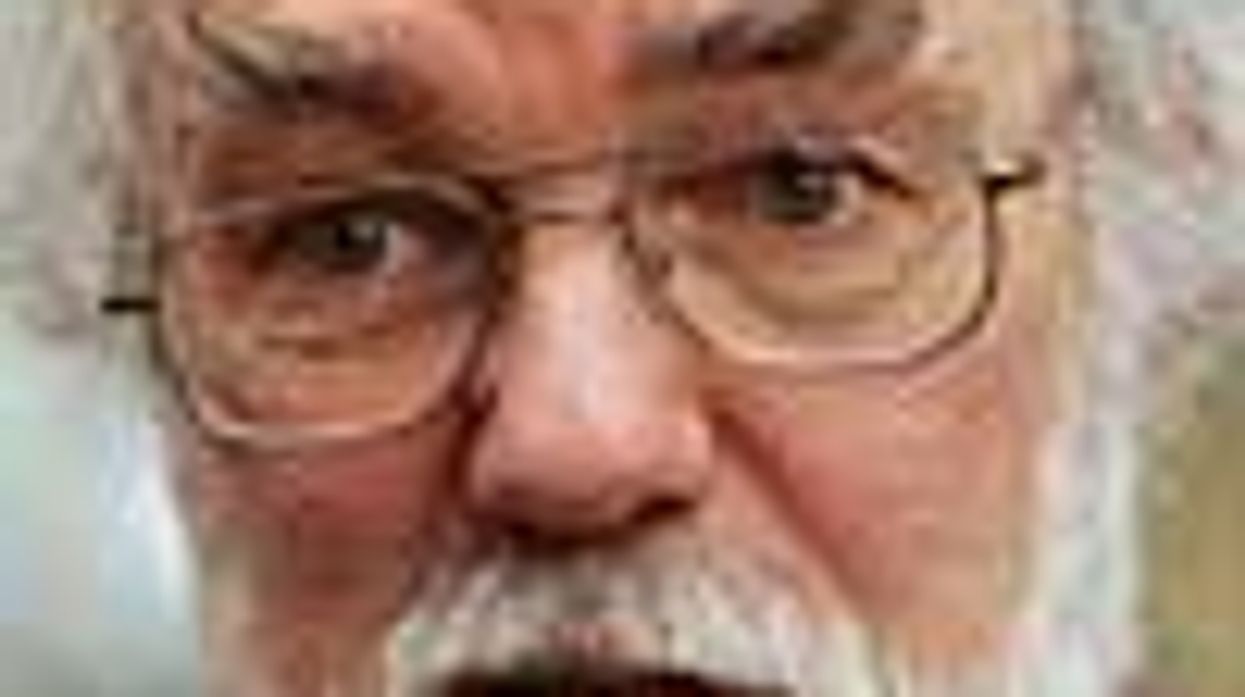Archbishop of
Canterbury Rowan Williams, struggling to hold together the
troubled world Anglican family, urged church leaders
gathered Sunday in England not to consecrate another
gay bishop, saying the fellowship will be in ''grave
peril'' without a moratorium.
In his final
speech at the once-a-decade Lambeth Conference, Williams
said Anglicans need ''space for study and free discussion
without pressure'' about whether to accept changes in
traditional biblical understanding of same-sex
relationships. He also asked churches to refrain from
adopting official prayers for blessing same-gender unions.
''If the North
American churches don't accept the need for moratoria,
then to say the least, we are no further forward,'' Williams
said at a news conference ending the 20-day assembly
in Canterbury. ''That means as a communion we continue
to be in grave peril.''
The 77
million-member Anglican Communion has been splintering since
2003, when the U.S. Episcopal Church consecrated the
first openly gay bishop, V. Gene Robinson of New
Hampshire.
Williams barred
Robinson and a few other bishops from the meeting, and
designed the event without legislation or votes, instead
focusing on rebuilding frayed relationships.
Still, more than
200 theologically conservative bishops boycotted the
gathering, upset that Williams had invited Episcopal leaders
who consecrated Robinson. In June, just before Lambeth
began, those same conservative bishops formed a new
global network within the communion that challenges
Williams' authority but stops short of a permanent split.
Williams does not
have the authority to force an agreement among the
conflicted groups. The 38 Anglican national churches,
including the U.S. Episcopal Church, are self-governed
and loosely connected by shared roots in the
missionary work of the Church of England.
But the 650
bishops at Lambeth said Sunday in a statement, which they
called their ''reflections'' on the meeting, that ''there is
widespread support across the communion'' for an
extended moratorium on gay bishops and on blessing
ceremonies for same-gender couples.
''A fellow
Christian may believe they have a profound fresh insight,''
Williams said in his final address. ''But the Christian with
the new insight can't claim straight away that this is
now what the Church of God believes or intends.''
Episcopal
Presiding Bishop Katharine Jefferts Schori issued a brief
statement that did not address the requested bans. She said
the communion ''is suffering the birth pangs of
something new'' and urged patience in the church.
Los Angeles
Bishop Jon Bruno told Episcopal Cafe, the blog of the
Diocese of Washington, D.C., ''for people who think
that this is going to lead us to disenfranchise any
gay or lesbian person, they are sadly mistaken.''
Same-sex marriage was legalized in California in June.
The Anglican
Church of Canada also has parishes that permit blessings for
same-sex couples.
No one expected
the Lambeth Conference to definitively heal the rifts
among Anglicans. Still, other Christians watched the
gathering closely.
The communion is
the third-largest religious group in the world, behind
Roman Catholics and Orthodox Christians. Many Protestant
churches are also struggling with how they should
interpret what Scripture says about gay relationships
and other issues.
Anglican internal
problems are also hurting their ties with other
Christians.
Catholic Cardinal
Walter Kasper, president of the Pontifical Council for
Promoting Christian Unity, spoke at Lambeth, urging the
bishops to maintain Christian tradition. What is at
stake ''is nothing other than our faithfulness to
Christ himself,'' Kasper said.
Vatican and
Anglican officials have been in talks for years about
reunifying -- an effort complicated by the Church of
England's recent move to accept female bishops.
Anglicans split from Rome when England's King Henry
VIII bolted in 1534 after he was refused a marriage
annulment.
The bishops at
Lambeth discussed a proposed global covenant that would
set some requirements for membership in the communion.
Williams said Sunday that he plans a meeting early
next year of the 38 Anglican national leaders, or
primates, to move ahead with the idea. But it will be
years before any agreement is reached.
Williams and the
bishops also urged a moratorium on church leaders taking
oversight of breakaway parishes in an Anglican territory
that is not their own.
Conservative
Anglican leaders from Nigeria, Uganda, Kenya and elsewhere
now have authority over seceding Episcopal parishes. One
diocese, San Joaquin, based in Fresno, Calif., has
broken away, and two more -- Pittsburgh and Fort
Worth, Texas -- are poised to do the same this fall.
Robinson traveled
to Canterbury even though he wasn't invited, meeting
with overseas bishops and serving as what he called a
''constant and friendly'' reminder of gays in the
church. His spokesman did not return a call Sunday
seeking comment. (AP)





































































Charlie Kirk DID say stoning gay people was the 'perfect law' — and these other heinous quotes